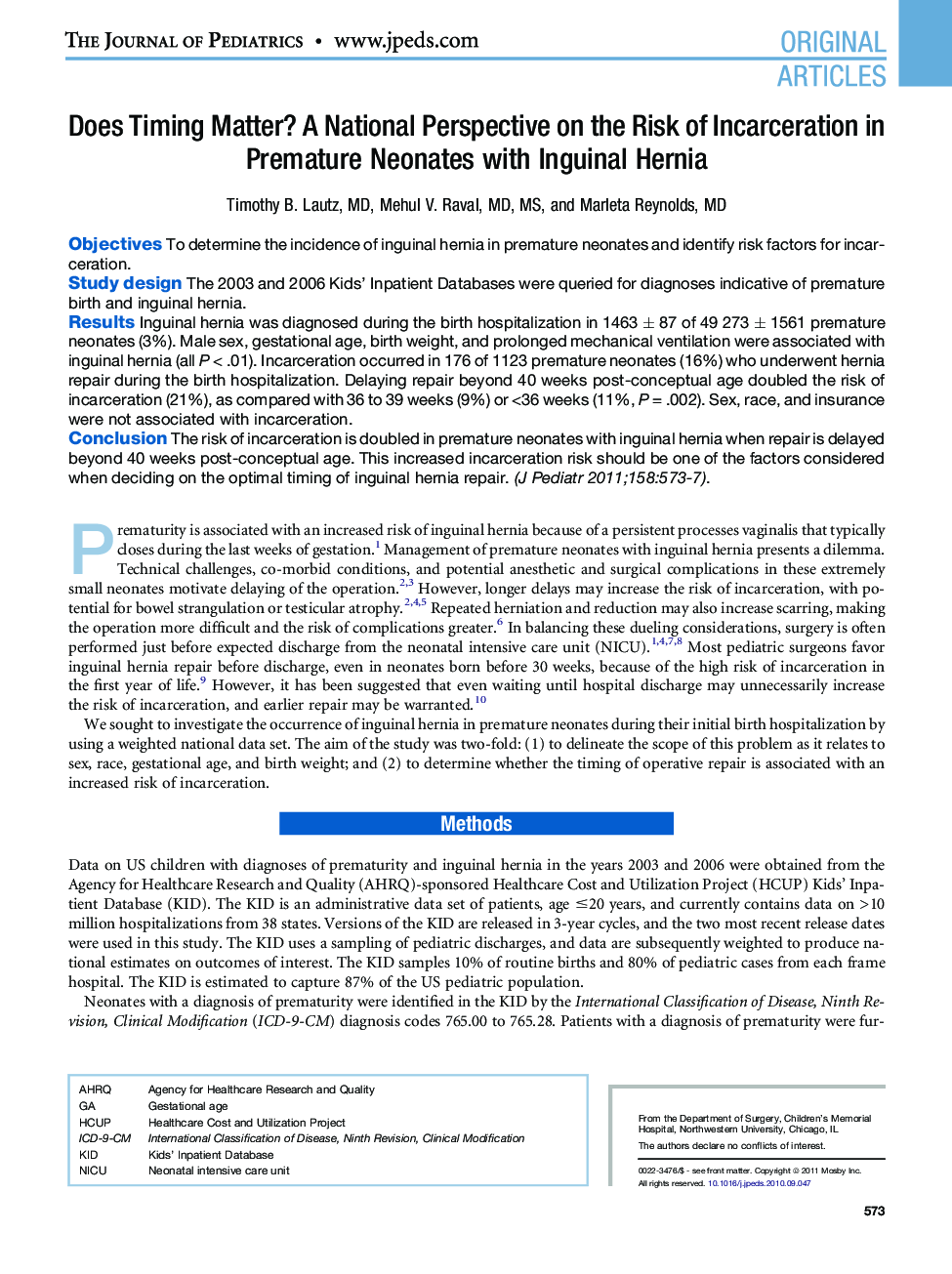| Article ID | Journal | Published Year | Pages | File Type |
|---|---|---|---|---|
| 4167107 | The Journal of Pediatrics | 2011 | 5 Pages |
ObjectivesTo determine the incidence of inguinal hernia in premature neonates and identify risk factors for incarceration.Study designThe 2003 and 2006 Kids’ Inpatient Databases were queried for diagnoses indicative of premature birth and inguinal hernia.ResultsInguinal hernia was diagnosed during the birth hospitalization in 1463 ± 87 of 49 273 ± 1561 premature neonates (3%). Male sex, gestational age, birth weight, and prolonged mechanical ventilation were associated with inguinal hernia (all P < .01). Incarceration occurred in 176 of 1123 premature neonates (16%) who underwent hernia repair during the birth hospitalization. Delaying repair beyond 40 weeks post-conceptual age doubled the risk of incarceration (21%), as compared with 36 to 39 weeks (9%) or <36 weeks (11%, P = .002). Sex, race, and insurance were not associated with incarceration.ConclusionThe risk of incarceration is doubled in premature neonates with inguinal hernia when repair is delayed beyond 40 weeks post-conceptual age. This increased incarceration risk should be one of the factors considered when deciding on the optimal timing of inguinal hernia repair.
